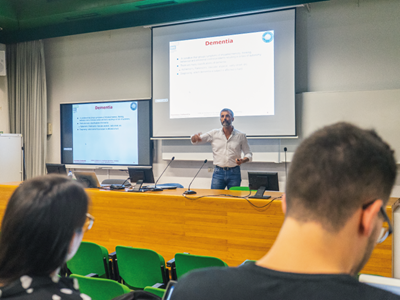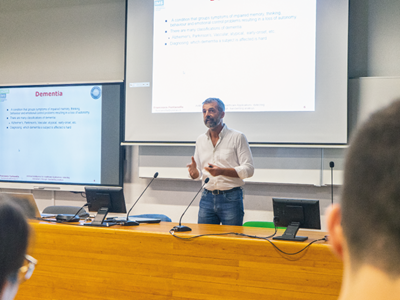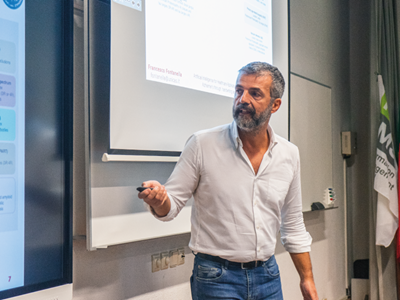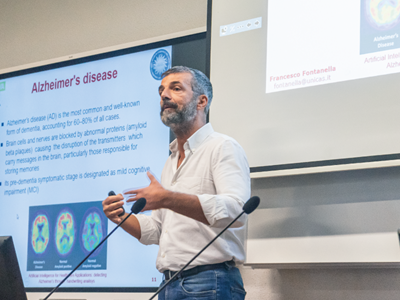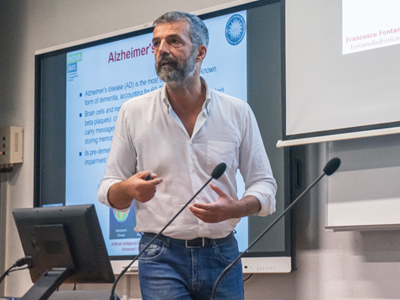Alzheimer’s disease (AD) affects millions of people worldwide, and it is expected that its incidence will dramatically increase in the next few decades. Unfortunately, this disease cannot be cured, but an early diagnosis can help to better manage its symptoms and progression. Handwriting is one of the first skills to be affected by the onset of AD. For this reason, in the last few years, there has been an even growing interest of researchers to apply artificial intelligence (AI) based approaches to effectively identify the handwriting of people affected by AD.
These approaches are based on the collection of handwriting data, which can be acquired through simple and non invasive handwriting tests, to be performed using cheap smartpads. Thanks to the project HAND (Handwriting Analysis against Neuromuscular Disease), the University of Cassino collected a dataset from more than 170 people (Alzheimer’s patients and healthy people) which is the largest currently publicly available in the field of handwriting analisys for AD detection in terms of number of participants involved and tasks performed.
The researchers from Cassino are using this data to implement and test several AI techniques with the aim of developing a system for the screening of people affected by AD based on handwriting analisys. In this talk I will discuss the main results achieved by the HAND project, future ideas and the challenges in transforming it into an AI-based tool to improve the daily lives of elderly people and their families.





